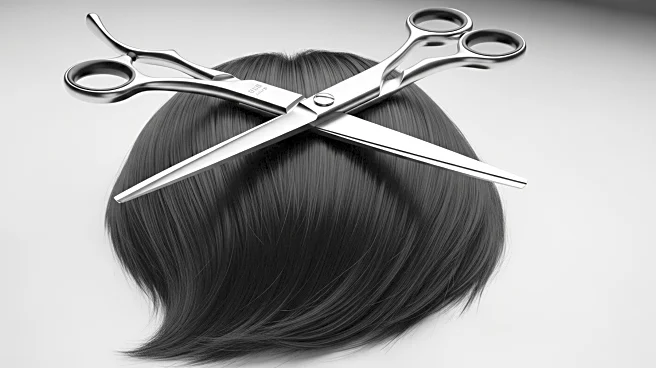What's Happening?
Mariska Hargitay, known for her long-standing role as Capt. Olivia Benson on 'Law & Order: SVU,' revealed in an interview with Allure Magazine that she almost lost her job due to a drastic hairstyle change. During the third season of the show, Hargitay debuted a pixie haircut that was considered too extreme by the producers. The decision to cut her hair short was made impulsively, influenced by her hairstylist who had been drinking wine at the time. Despite the initial backlash, Hargitay has continued her role on the show, which is now entering its 27th season. The actress reflected on the haircut, acknowledging its practicality for her character but expressing personal dislike for the style.
Why It's Important?
The incident highlights the influence of appearance in the entertainment industry, where actors' looks can significantly impact their roles and careers. Hargitay's experience underscores the pressures faced by performers to conform to certain aesthetic standards set by producers and networks. This revelation also sheds light on the behind-the-scenes dynamics of long-running television shows, where continuity and character consistency are crucial. For fans of 'Law & Order: SVU,' Hargitay's continued presence is significant, as her character has become iconic over the years, contributing to the show's enduring popularity.
What's Next?
With the upcoming premiere of 'Law & Order: SVU' season 27, viewers are anticipating new developments in the storyline, including a reunion between Hargitay's Olivia Benson and Christopher Meloni's Elliot Stabler. The show's longevity and Hargitay's role in it continue to be a focal point for fans, who are eager to see how the characters evolve. The producers' decision to retain Hargitay despite the haircut controversy suggests a commitment to maintaining the show's core cast, which could influence future casting and character decisions.
Beyond the Headlines
The anecdote about Hargitay's haircut also touches on broader themes of personal expression versus professional expectations. It raises questions about the autonomy actors have over their appearance and the potential consequences of deviating from established norms. This incident may resonate with other performers who face similar challenges in balancing personal style with professional requirements.









